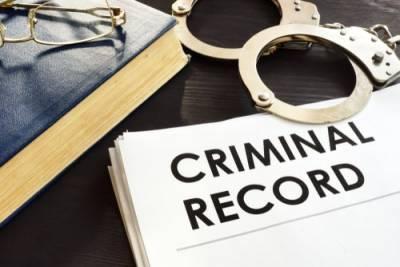How Does Connecticut’s New Clean Slate Law Affect Criminal Convictions?
 When a person is convicted of criminal charges, they will face certain penalties. Depending on the nature of the offense, the person’s previous criminal record, and other factors, they may be sentenced to time in prison, required to pay fines, or face certain restrictions during a period of probation. However, there are a variety of other collateral consequences that can affect those who have been convicted of crimes. A criminal record can make it difficult or impossible for a person to find employment, housing, or education. To address this issue, the state of Connecticut recently passed a “clean slate” law that will allow some convicts’ records to be cleared once they have completed their sentences.
When a person is convicted of criminal charges, they will face certain penalties. Depending on the nature of the offense, the person’s previous criminal record, and other factors, they may be sentenced to time in prison, required to pay fines, or face certain restrictions during a period of probation. However, there are a variety of other collateral consequences that can affect those who have been convicted of crimes. A criminal record can make it difficult or impossible for a person to find employment, housing, or education. To address this issue, the state of Connecticut recently passed a “clean slate” law that will allow some convicts’ records to be cleared once they have completed their sentences.
Automatic Clearing of Records for Certain Crimes
Currently, convicts in Connecticut are able to clear their criminal records by applying for a pardon. Depending on their offense and whether any victims have an interest in the case, a person may be required to attend a hearing before the Board of Pardons and Paroles. The process of applying for a pardon can be complicated, and many convicts struggle to clear their records and move forward with their lives.
Under the new clean slate law, certain types of criminal convictions will be automatically cleared from a person’s record after a certain amount of time has passed. Misdemeanor offenses will be expunged after seven years have passed since the date of the conviction. Class D and E felonies or unclassified felonies may be expunged after 10 years, as long as a person’s prison sentence was no more than five years. However, automatic expungement will not be available for those convicted of offenses involving family violence or sex crimes (including both violent and non-violent offenses).
The clean slate law is likely to affect over 300,000 Connecticut residents who have been convicted of crimes and completed their sentences. Black people stand to benefit significantly, since Black men are four times more likely to be sentenced to prison than white men, and Black men and women are three times more likely to be convicted of a felony. The law will go into effect on January 1, 2023. Before that date, convicts who are eligible may apply for pardons. Pardons may also be available for those who do not qualify for automatic expungement once the law takes effect.
Contact Our Connecticut Criminal Record Expungement Attorneys
If you have questions about how you can clear your criminal record, the Woolf & Ross Law Firm, LLC can help you determine whether you will be eligible for automatic expungement or whether you can apply for a pardon. We also provide representation for those who are facing criminal charges, helping them determine the best strategy for avoiding a conviction that will affect their future. Contact our Hartford criminal defense lawyers today at 860-290-8690 to arrange a complimentary consultation.
Sources:
https://www.cga.ct.gov/2021/ACT/PA/PDF/2021PA-00032-R00SB-01019-PA.PDF
https://www.nbcconnecticut.com/news/local/governor-lamont-signs-clean-slate-bill-that-will-wipe-away-certain-criminal-records/2505945/
https://ctmirror.org/2021/05/27/narrowed-clean-slate-bill-wins-final-passage/






